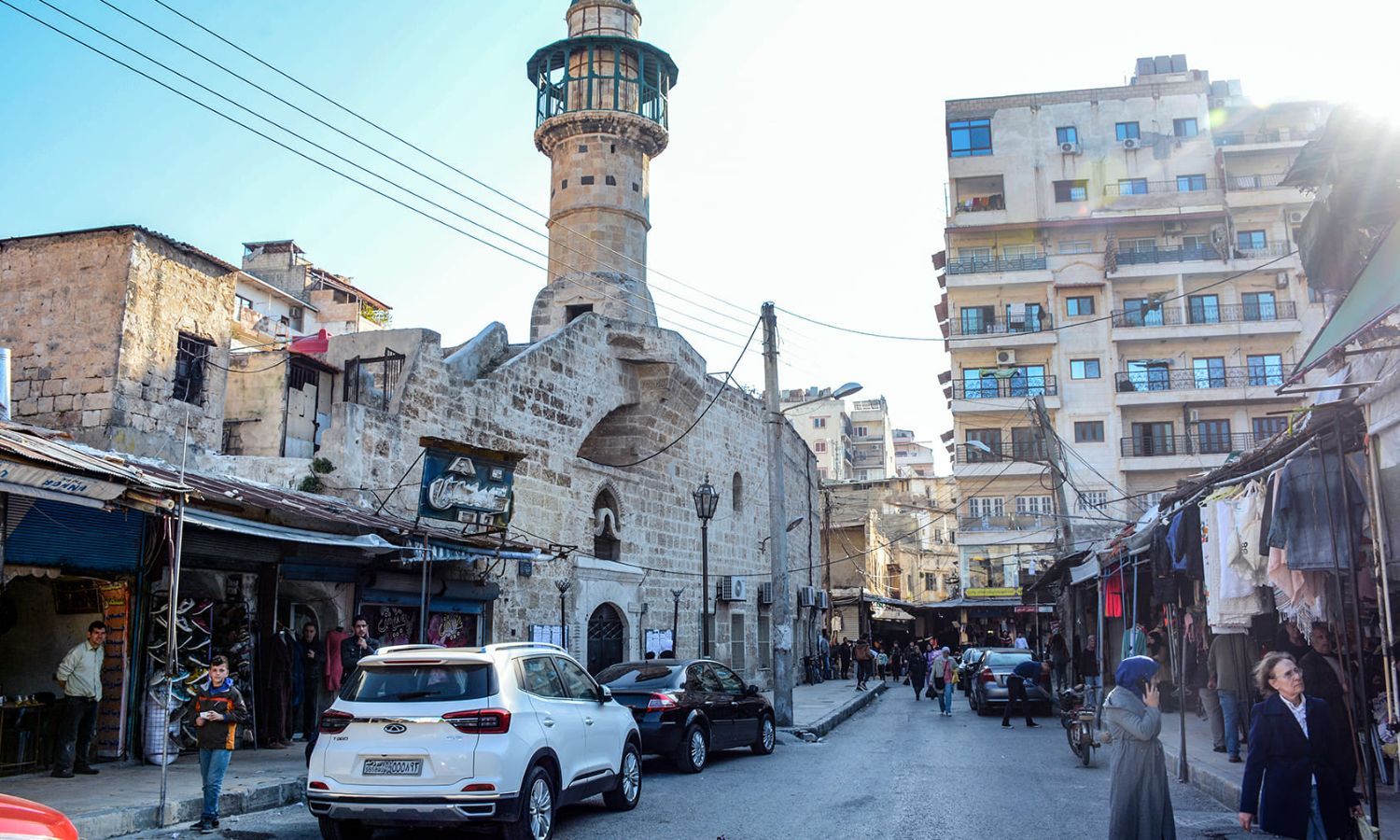



Latakia – Linda Ali
Many residents of Latakia are anxious about a recent decision by the governorate to ban the operation of motorcycles within the city limits from 10 PM to 7 AM.
Despite the decision, the noise of motorcycles continues to fill most of the city’s neighborhoods, from Saliba to Zira’a, passing through Datoor and Project Eight, among others.
Motorcycles are a job opportunity for many city residents or serve as an affordable means of transportation amid the high taxi fares. There is no way to abandon them as the need for them far outweighs any noise or inconvenience they might cause.
Abu Mohammed, a displaced person from Aleppo living in the Saliba neighborhood, said that his motorcycle is his only means of livelihood, supporting his family of three daughters, a teenage son, and his wife.
Abu Mohammed’s day starts at 7 AM, when his wife prepares coffee and hot water for various drinks, which he then carries on his motorcycle to a corner of the city, turning his bike into a stand for selling beverages.
Abu Mohammed’s work usually ends around 4 PM, and after taking a short rest, he begins his evening shift. He chooses a spot with a lot of foot traffic, either in a park or on the southern corniche, and continues working until after midnight, depending on the customers and the availability of his supplies. Often, he stays out past 2 AM in the summer.
The governorate’s decision threatened the fifty-something-year-old man’s livelihood, prompting him to take a risk and continue working as usual. He noted that no one stopped him or confronted him, leading him to believe that the decision likely won’t be enforced, and he hopes it never will be.
Like Abu Mohammed, many young men and adult males can be seen along the corniche and near public parks like Panorama, selling beverages or using their motorcycles to pull carts with fava beans and corn.
The decision, which many residents of the city and its suburbs hope will not be implemented, will negatively impact those who work in cafes or fast-food restaurants in the city center but live in far-flung suburbs like Dhahiya, Saqobin, and Datoor. These workers often start their shifts at 5 PM and don’t finish until after midnight.
Ali, 28, who works as a waiter in a cafe in central Latakia and lives in Dhahiya at the city’s entrance, said he often finishes work after midnight, when no public transportation is available, forcing him to use his motorcycle. He added that he would have to quit his job, which he found after a long search, if the decision is enforced.
Motorcycles are also widely used near the intercity bus station and another station at the city’s entrance. They serve as a convenient means of transportation for stranded male travelers after 9 PM. The cost is significantly lower compared to taxis, almost 25% of the taxi fare.
For example, a motorcycle ride from the station at the city’s entrance to Datoor neighborhood costs 10,000 Syrian pounds, while a taxi for the same distance charges 25,000 pounds after bargaining, as taxi drivers often demand 30,000 pounds and refuse to accept less.
Due to the scarcity of job opportunities and the need for employment, many motorcycle owners have turned their bikes into sources of income by delivering orders to homes, especially at night.
Maha, 35, a public sector employee living in the Al-Baath Project neighborhood, said she doesn’t dare to leave her home after 9 PM without a family member. Her husband is abroad, and her children are still young. She had an arrangement with her colleague’s husband to bring home supplies anytime for a fee of 8,000 pounds.
Maha, who was shocked by the decision, was told by her friend’s husband that it was impossible to implement it, “Such a move would create chaos and cut off people’s livelihoods,” she remarked, adding that she used to order meals through an app that charged 20,000 pounds for the service, whereas she could get the same order for 8,000 pounds through her friend’s husband.
Several delivery companies in Latakia use motorcycles. Enab Baladi’s correspondent contacted one company on May 10, two days after the decision was announced, and ordered food from a restaurant in the city. The order was delivered as usual, and when the reporter inquired about the decision, the customer service employee said there were no new updates and that everything was proceeding as normal. Indeed, the order arrived on a motorcycle as expected.
Despite their critical role in the lives of many Latakia residents, motorcycles are a significant source of concern for many young women, who often experience harassment or theft from some motorcycle riders exploiting the pitch darkness due to power outages, leading to fear and panic among the people at times.
if you think the article contain wrong information or you have additional details Send Correction